At 6.30 pm on 18th August 1823, Jack Gladstone walked up to the large bell that hung at the centre of the sugar plantation, and rang it. This was the signal for the start of the Demerara uprising, that would become the largest revolt against British slavery up to that point. — Thomas Harding, author of White Debt: The Demerara Uprising and Britain’s Legacy of Slavery, in Aspects of History
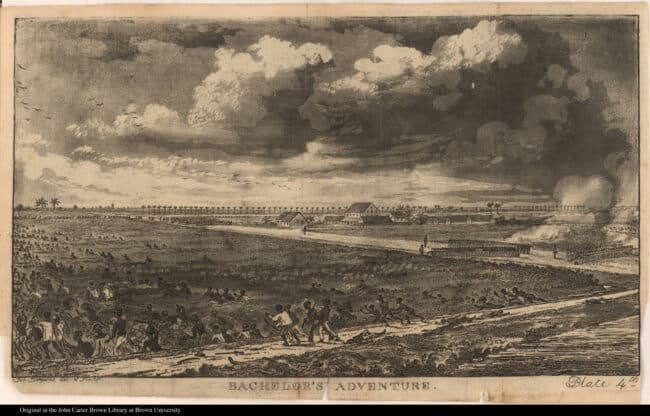
The Bachelor’s Adventure, a scene depicting the insurrection of the enslaved in Demerara, Guyana. From the John Carter Brown Library. Source: Public domain
Jack Gladstone and his father, Quamina, both enslaved on the Success plantation, planned the uprising. According to Black Past, along with English Protestant missionary, John Smith, Quamina advocated a nonviolent uprising, and suggested that the enslaved go on strike rather than shed the blood of their oppressors.
The Black Past article continued:
Quamina’s call to remain peaceful fell on deaf ears. The enslaved on Plantation Success rebelled on August 18, 1823, and attempted to seize all firearms on the plantation. They locked up the whites during the night, planning to release them when their demands were met. They did not see their rebellion as a challenge to slavery itself but demanded better treatment for enslaved people in Demerara-Essequibo. Read more.
Their initial success was met by fierce counterattack by British militias, with those who participated in the uprising being hunted down and brutally killed. Jack Gladstone was captured and sentenced to be hanged, though he later received clemency from the governor.
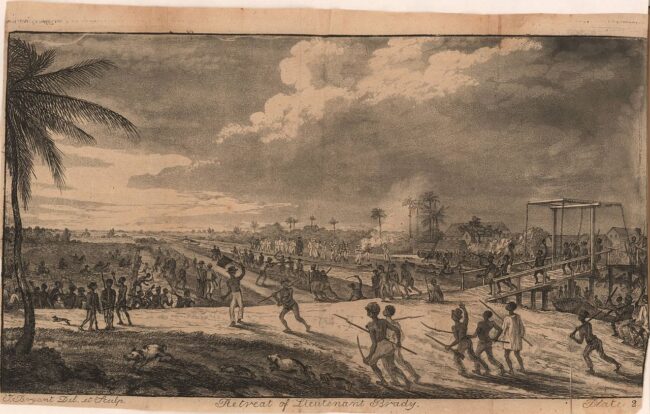
The Retreat of Lieutenant Brady, a scene depicting the insurrection of the enslaved in Demerara, Guyana. From the John Carter Brown Library. Source: Public domain
The Aspects of History article continues:
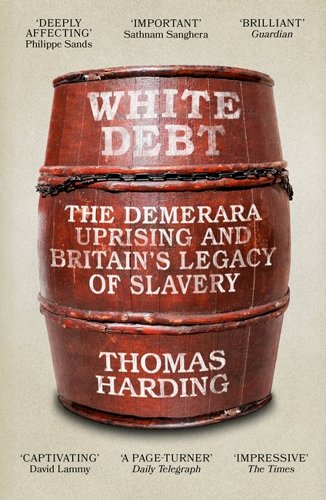 The Demerara uprising had significant consequences. Ever since the successful abolition of the slave trade in 1807, the anti-slavery movement had experienced a collapse in public support. To many, the argument had long been won, even though more than 650,000 people remained enslaved in the Caribbean. This all changed when news arrived back in England of the uprising and the public learned of the appalling conditions endured by the enslaved men and women in Demerara. Soon, a massive petition campaign was in full swing. Members of Parliament were bombarded by letters demanding a full end to slavery in the Empire. A two-day debate took place in the House of Commons, calling for a review of the court martials that had taken place in Georgetown, particularly the fate of John Smith.
The Demerara uprising had significant consequences. Ever since the successful abolition of the slave trade in 1807, the anti-slavery movement had experienced a collapse in public support. To many, the argument had long been won, even though more than 650,000 people remained enslaved in the Caribbean. This all changed when news arrived back in England of the uprising and the public learned of the appalling conditions endured by the enslaved men and women in Demerara. Soon, a massive petition campaign was in full swing. Members of Parliament were bombarded by letters demanding a full end to slavery in the Empire. A two-day debate took place in the House of Commons, calling for a review of the court martials that had taken place in Georgetown, particularly the fate of John Smith.
Ten years after the uprising, the Slavery Abolition Act was finally passed. In August 1834, slavery was outlawed across the British Empire. And while colonial exploitation continued, including a period of apprenticeship and later a system of indentureship, the abolition of slavery marked a significant step towards freedom, not only for those enslaved, but for all of us. Read more.

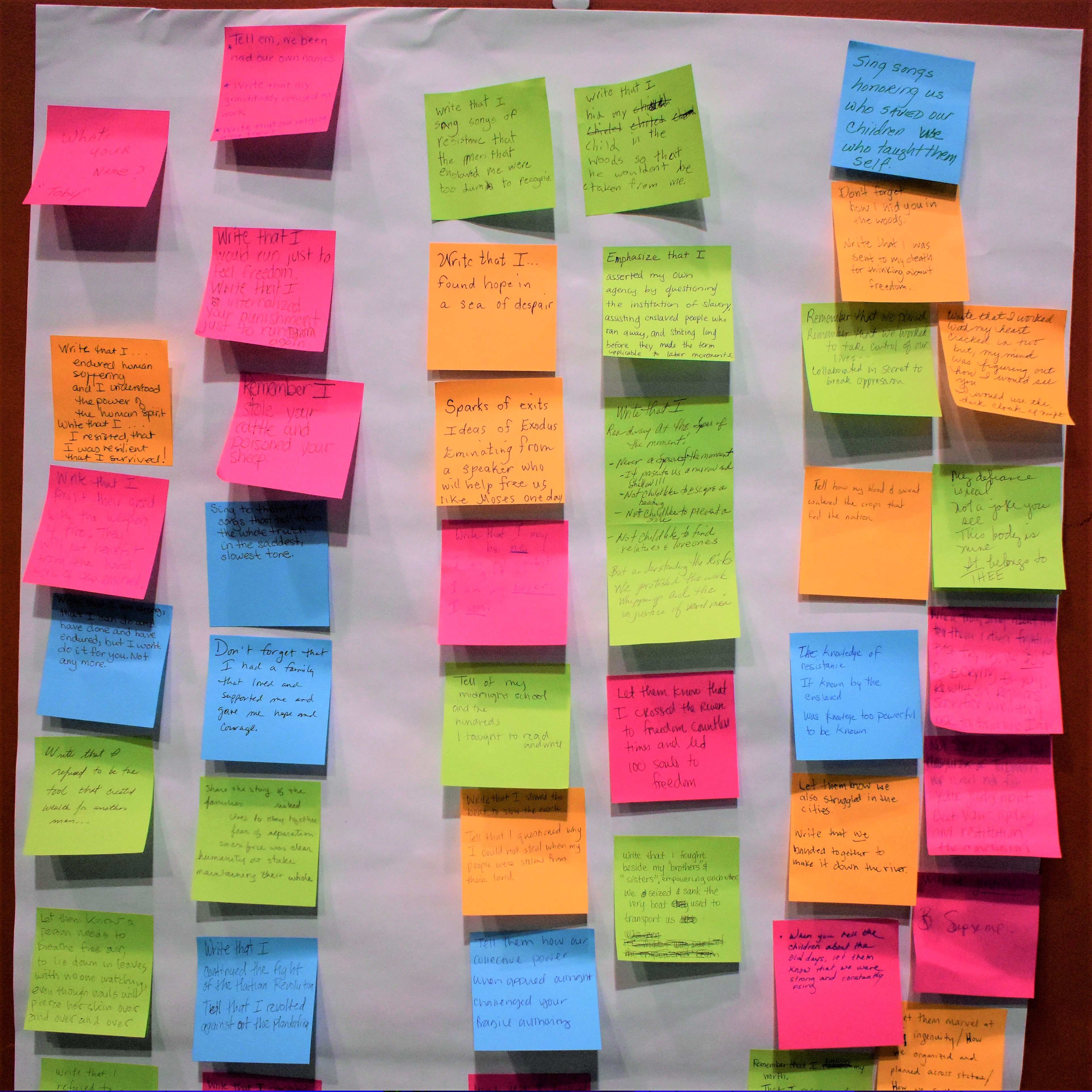
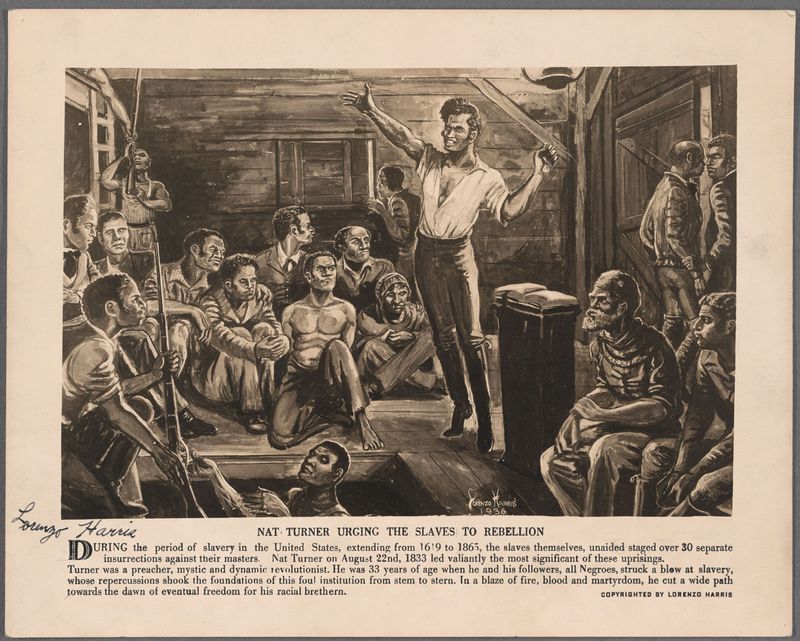
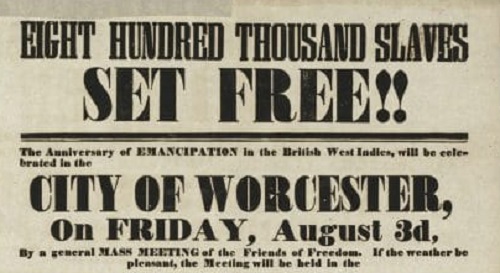
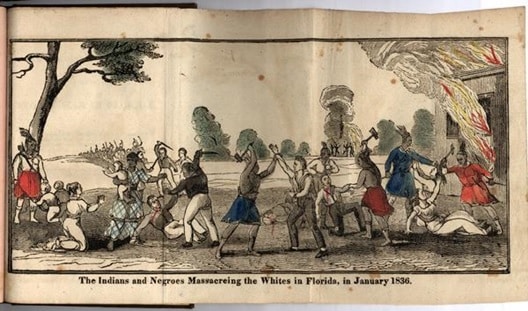





Twitter
Google plus
LinkedIn